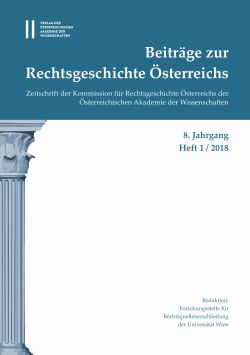
Beiträge zur Rechtsgeschichte Österreichs 1 / 2018, pp. 63-80, 2018/06/05

Lembergʹs city statute was adopted in October 1870 after about one decade of intensive debates over peculiarities in the city’s politics (the limitation imposed on Jews within the city council, the existence of only one election body). It was never changed because the local political elites wanted to secure their influence and the cityʹs ʺPolish character ʺ. Hence, the regulations of the statute influenced heavily the relations between different nationalities – Poles, Ruthenians (Ukrainians) and Jews – and were the central reason for the deepening of the conflict between nationalities within the city, which became clear during the debates on a revision of the local election regulations in the 1900s. The local elites prevented a ʺlocal compromiseʺ. But as Lembergʹs statute was set within the frame of imperial municipal law, it could be seen as a primary example of how the imperial municipal law regulations influenced the relationship between the nationalities in general. Imperial municipal law was intended to delegate administrative tasks which could not be put into effect by the central government, but only by the local administration, in such a way that it would advance the imperial administration. In contrast to this intention, it simultaneously enforced the local dynamics and (national) centrifugal tendencies, thus helping the politically and socially dominant ethnic group to strengthen its position within the context of contesting nationalities.
Keywords: city statutes – Galician municipial law – imperial law – Lemberg [Ľviv] – local election regulation – provisional municipal law